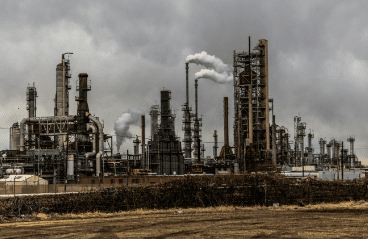In a dramatic turn of events, the Grangemouth refinery, a vital part of Scotland’s energy supply, is facing closure. This news has shocked the workers and the local community, with many feeling it’s like a “kick in the teeth.” Brian Leishman, the Labour MP for Grangemouth, is leading the charge to urge the UK government to take action by nationalising the refinery to keep it open and save hundreds of jobs.
What’s Happening at Grangemouth?
The Grangemouth refinery, which has been in operation for over 100 years, is on the brink of shutting down. This closure could mean the loss of around 400 jobs, which has caused a lot of concern for the workers and their families. The company behind the refinery, Petroineos, is a partnership between PetroChina, a large state-owned company from China, and Ineos, a London-based firm. Recently, Petroineos announced that they plan to convert the refinery into a terminal that would import fuels like petrol, diesel, and aviation fuel. This new terminal is expected to open next summer.

Why Nationalise?
Brian Leishman believes that nationalising the refinery is crucial for both public interest and national security. Nationalisation means that the government would take over the ownership and operation of the refinery. Leishman argues that this step is necessary to ensure that fuel supplies remain stable and jobs are protected. He feels strongly that the closure of the refinery is not set in stone and insists that the fight to save it must continue.
In his view, the UK government should not just accept the idea that the refinery is not making money. He challenges the narrative that has been accepted by both the UK and Scottish governments, which he believes is too passive. According to Leishman, the key to profitability lies in ensuring that important equipment, like the hydrocracker, is functioning properly. This equipment is crucial for processing oil efficiently and could turn the refinery’s fortunes around.
A Matter of National Security
Leishman makes a compelling case that energy security is closely linked to national security. If the UK cannot produce its own fuels, it may become more vulnerable to global energy crises. By keeping the Grangemouth refinery operational, the government would not only help protect local jobs but also ensure that Scotland and the wider UK have a reliable energy source.
The Government’s Response
Prime Minister Sir Keir Starmer has acknowledged the situation, stating that the government is committed to ensuring there are “safe, secure, skilled jobs” in Scotland for many generations. However, Leishman has expressed doubt about whether enough is being done to save the future of the Grangemouth refinery. He has called on the Prime Minister to take more decisive action to support the facility and the workers who depend on it.
The Community’s Reaction
The news of the refinery’s possible closure has sent ripples through the Grangemouth community. Many locals feel a strong attachment to the refinery, as it has been a significant employer in the area for decades. Workers are worried about what the closure would mean for their families and the local economy. Without the refinery, many fear that Grangemouth could face economic challenges that would take years to overcome.

What’s Next?
So, what does the future hold for the Grangemouth refinery? Leishman is determined to continue fighting for its survival. He believes that with enough pressure from the community and support from the government, the refinery could still have a chance.
It is clear that the situation is complex and involves not just local concerns but also broader issues of energy security and economic stability. The upcoming months will be critical as discussions continue about the refinery’s fate. The call for nationalisation highlights the importance of government involvement in key industries that impact people’s lives and national interests.








